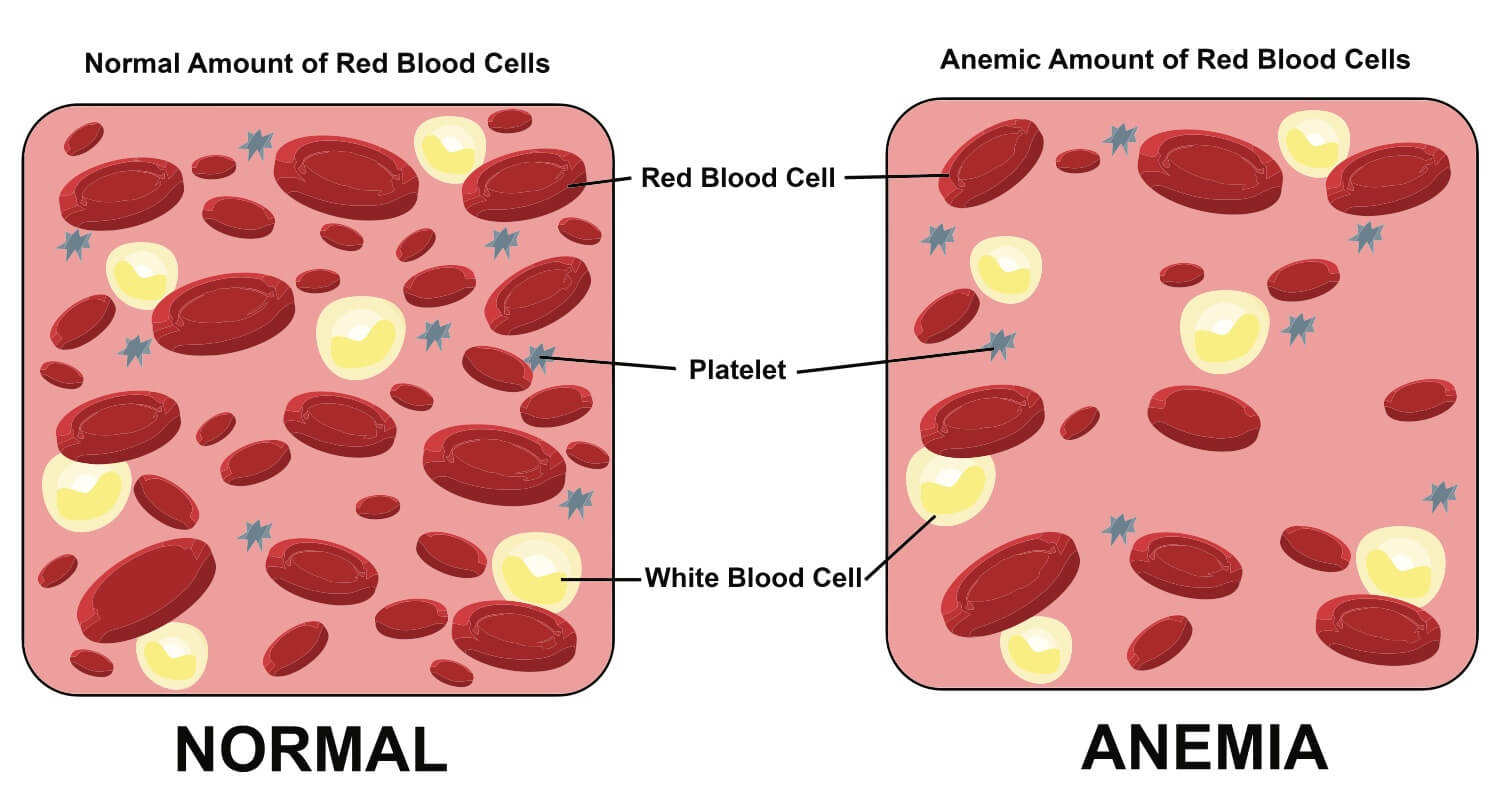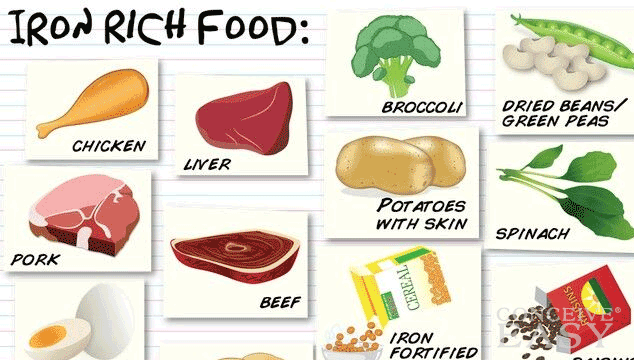
Fatigue is often the first symptom to develop in pregnant women. It is also associated with postnatal.

After giving birth iron deficiency anaemia can also affect you by causing tiredness and reducing your milk production.
Low iron during pregnancy. Taking a prenatal vitamin that contains iron can help prevent and treat iron deficiency anemia during pregnancy. In some cases your health care provider might recommend a separate iron supplement. During pregnancy you need 27 milligrams of iron a day.
Good nutrition also can prevent iron deficiency anemia during pregnancy. It carries oxygen from the lungs to the rest of the body. In iron-deficiency anemia the blood cannot carry enough oxygen to tissues throughout the body.
But there are other factors outside pregnancy that increase your risk further including. Heavy menstrual periods A diet low in iron-rich foods A diet low in vitamin-C-rich foods which help with iron absorption Eating too many foods or drinks that reduce iron absorption like dairy products foods. Pregnancy iron deficiency also increases the risk of having a low birth weight baby and a premature delivery.
After giving birth iron deficiency anaemia can also affect you by causing tiredness and reducing your milk production. It is also associated with postnatal. When iron levels are low the red blood cells are unable to carry oxygen to the bodys tissues.
Although it is normal to experience mild anemia during pregnancy due to increased blood volume severe anemia may put you and your baby at risk of premature delivery and low birth weight. Common but Sneaky Symptoms of Low Iron During Pregnancy But to form these red blood cells the bodys need for iron increases dramatically4. Some women have enough iron.
Personal factors can predict your iron supply. Just being pregnant increases your risk of iron deficiency. Low iron levels cause about 75 percent of anemia cases usually because youre not getting enough of this essential mineral in your diet.
Heres the rundown on why anemia makes you feel run-down. By week 24 of pregnancy the amount of blood in your body increases by up to 45 percent to support both you and your growing baby. Low iron condition occurs in women during pregnancy due to the increased demand for iron which is needed to build the tissues of the fetus placenta increasing the mass of red blood cells.
And if we add to this blood loss during childbirth the total outgo of iron in pregnancy and childbirth shall be not less than 700-900 mg. Low iron during pregnancy causes iron deficiency anemia and iron is the chief component of hemoglobin. Women often have low levels of iron as they lose blood through menstruation and the body gets depleted of its iron sources.
Low iron during pregnancy causes could include nausea and vomiting and loss of appetite. Low iron may make you feel tired have headaches get dizzy feel weak or have shortness of breath. These are often things that a pregnant person may experience at some point in their pregnancy anyway so all pregnant people have their iron levels tested regardless of symptoms.
Pregnancy is often the cause of iron-deficiency anaemia. You and your baby need a lot more iron to make red blood cells while youre pregnant. Iron-deficiency anaemia can happen when you are not eating enough food with iron.
You are also more likely to have anaemia if you. Common Symptoms of Low Iron During Pregnancy. Fatigue is often the first symptom to develop in pregnant women.
It is caused by insufficient oxygen transport throughout the body due to reduced hemoglobin which is the protein responsible for carrying oxygen through the bloodstream. The prevalence of iron deficiency is far greater than the prevalence of anemia and iron deficiency low serum ferritin and sparse or absent stainable iron in bone marrow often develops during the later stages of pregnancy even in women who enter pregnancy with relatively adequate iron stores. For this reason and because of doubts concerning the benefits of iron supplementation on pregnancy outcome there is uncertainty about whether routine iron.
Iron deficiency anaemia may also impair temperature regulation and cause pregnant women to feel colder than normal. Storage iron is depleted before a fall in Hb and as iron is an essential element in all cells symptoms of iron deficiency may occur even without anaemia. These include fatigue irritability poor concentration and hair loss.
Having low iron levels can put you at risk for anemia especially during the second half of your pregnancy. How much iron do pregnant women need. Pregnant women need 27 milligrams of iron per day compared to 18 milligrams for adult women 19 to 50 who are not expecting.
Maintaining healthy iron levels during pregnancy on the other hand means youre less likely to become anaemic 4 in turn lowering the possible risks of premature birth a low birth weight 5 and low iron levels in your baby 6. Your midwife will check your iron levels regularly throughout your pregnancy. IRON IN PREGNANCY JUNE 2018 PAGE 3 OF 3 Iron content in common foods This table compares the iron content of som e common foods.
The iron from foods in the shaded area is best absorbed by the body. At 22 to 27 mg of iron per day is recommended but can be difficult to attain from food alone. If your blood iron level is low you may also need.